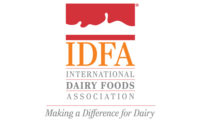The Consortium for Common Food Names (CCFN), National Milk Producers Federation (NMPF) and U.S. Dairy Export Council (USDEC) on April 30 commended Ambassador Katherine Tai and Office of the United States Trade Representative (USTR) staff, as well as USDA and other administration partners, for reaffirming in the USTR’s “Special 301 Report” the U.S. government’s commitment to tackling continued European Union (EU) misuse of legitimate geographical indications (GI) protections.
USTR’s report, an annual publication tallying global challenges pertaining to intellectual property issues, called out the EU’s policy of blocking fair competition through the pursuit of geographical indications restricting the use of common food and beverage terms, which erect barriers to trade in products relying on common food names, the Arlington, Va.-based organizations said.
“As part of its trade agreement negotiations, the EU pressures trading partners to prevent all producers, other than in certain EU regions, from using certain product names such as fontina, gorgonzola, parmesan, asiago or feta,” the report states. “This is despite the fact that these terms are the common names for products produced in countries around the world.”
CCFN filed extensive comments with USTR outlining GI-related developments, foreign governments’ roles in driving those policies and the impacts on U.S. farmers and food producers, the organizations said. NMPF and USDEC also submitted comments supporting CCFN’s global overview and the need for a more robust U.S. trade policy approach to tackling GI abuses.
“USTR has accurately diagnosed the problem. Now the task before the U.S. is to take the necessary steps to effectively curb this scourge to U.S. food and agricultural producers,” said CCFN Executive Director Jaime Castaneda. “The EU’s GI policy is intentionally barring competition from a host of other suppliers that all simply seek a level playing field including small and medium-sized family-owned companies, farmer-owned cooperatives, producers in developing countries and other actors throughout the supply chain that bear the brunt of these harmful restrictions. The U.S. must build on past advances to pursue a more proactive and effective path to combating the misuse of GIs by establishing concrete market access protections for the use of widely used terms.”


